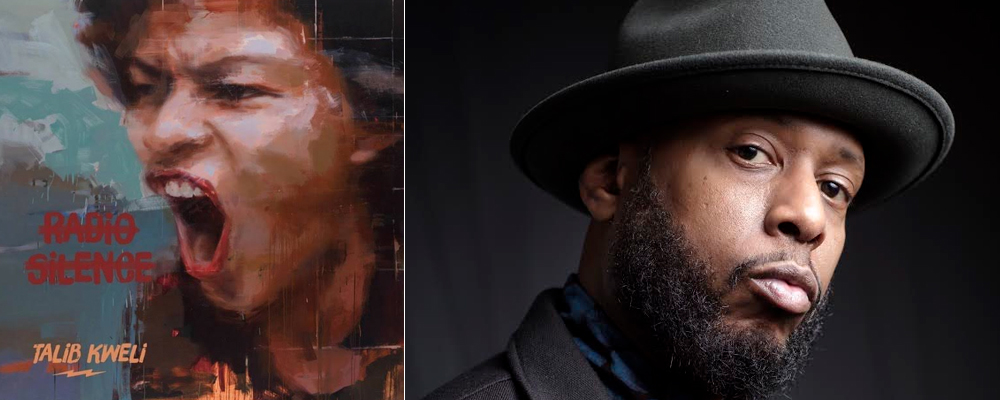Talib Kweli Speaks Truth to Power on ‘Radio Silence’
Jordan Bailey
Brooklyn-bred rapper Talib Kweli is back with his latest project “Radio Silence.” As his seventh studio-album, Kweli has taken to the past and present for inspiration, enlisting the help of both old-school and new-school artists, all the while maintaining the sense of activism that’s put Kweli at the forefront of black politicking in recent years.
Kweli’s best known for his ability to speak truth to power. More recently, his Twitter tears on race have stolen headlines, for better or worse, as the rapper has drawn scrutiny over his public spats. Per his music though, Kweli uses the same level of activism on the album. On the title track he reveals what it was like growing up in a city with “hood hieroglyphics,” a.k.a graffiti, which lead him to “refuse to be beholden by your racist image of a black man.” On the Rick Ross featured “Heads Up Eyes Open” Kweli sings, “A wise man know what he know and what he doesn’t/And if he’s not really sure what he’s saying, he don’t discuss it.” As someone who has studied critical race theory and participated in activism, he feels more than qualified to wax on the prominent issues of race that effect our society. The most heartfelt moment, however, comes from “She’s My Hero.” In 2016, 14-year-old Bresha Meadows was arrested for killing her father in his sleep after her and her family were being serially abused. When Kweli heard the story, he felt it was worth more than just a few news clippings. Over a somber beat by producer Oh No, he uses the first verse to discuss the story, ending with the conundrum, “Do you kill yourself or kill the monster that’s making you suicidal?/Decision’s too heavy for the mind of a child.”
Where the album may fall short though is during the instances that feel like an OG artist trying to fit in amongst the modernity of rap. “Chips,” the pseudo trap cut with Waka Flocka Flame falls flat production-wise making it sound a bit generic. Here, he forgoes the jazzy, classic hip-hop beats for which he’s become known for a stock trap sound that even forces him to adjust his cadence to nearly awkward levels. It seems like Kweli is most sonically comfortable in songs like the twinkling “Knockturnal” where background vocal loops and live drums lend to a more laid-back vibe. Now, there is some experimentation here that works great. The Kaytranada produced “Travelling Light” uses the Canadian DJ’s signature skewed, head-bobbing beats to discuss the changing landscape of Brooklyn, Kweli’s hometown. The music video shows him and featured artist Anderson .Paak on a BK stoop watching the city around them grow. In an interview with XXL he confirmed the theme by saying “The video is meant to be a day in my life highlighting how Brooklyn has changed but still remains the same in spirit.” .Paak’s coarse lyrics reiterate, “Brooklyn is changing, and so am I/I see you on the other side.” Other notable features include the gentle “All Of Us” with a rare verse from MC Jay Electronica, as well as the romantic cut “The One I Love” with burgeoning rapper BJ The Chicago Kid and a Sampha sample.
Overall, Kweli mingles thoughtful theories on race and culture with a mixed-bag of production delights. Aside from the aforementioned “Chips,” Kweli does a great job of avoiding the pitfalls of an elder statesman MC releasing an album decades after the highest point in his hustle. He not only sought the wisdom of fellow OGs, but invited the up-and-comers to inject their millennial creativity as well. All this atop Talib Kweli’s signature poignancy make “Radio Silence” an album worth a spot in his storied rap career.
“Radio Silence” is available Nov. 17 on Apple Music.

